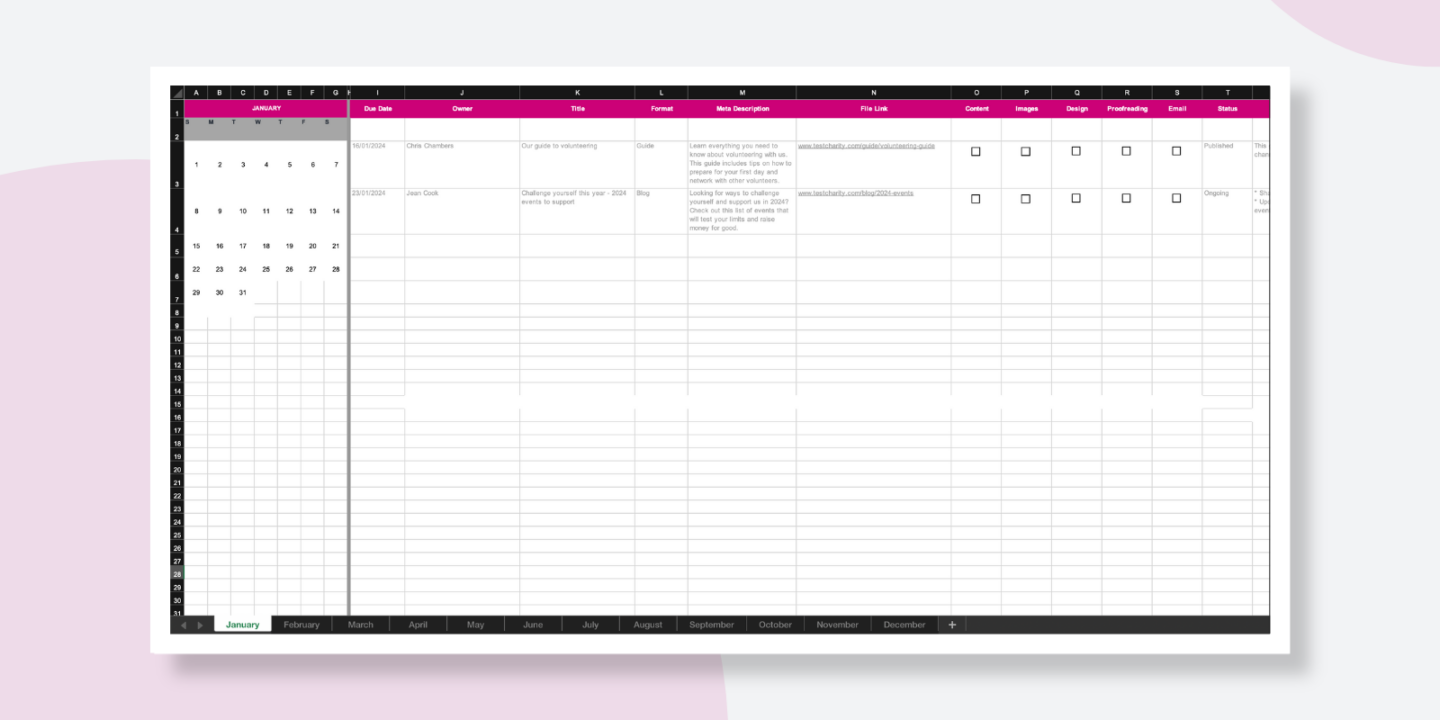
© 2024. Fresh Egg Limited. All rights reserved. VAT number: 750 4915 34 Company registration number: 3950929
Free
Sign up here to get the latest news, learning resources and access to exclusive events

A content calendar is your charity’s secret weapon for effective communication and impact! Staying organised and on top of your content is more important than ever. A well-crafted content calendar can help your charity plan ahead, save valuable time, and ensure that your messages consistently connect with your audience when it matters most. It’s not just about posting regularly—it’s about being strategic, intentional, and impactful with every piece of content you share.
This guide will walk you through the essentials of creating and using a content calendar, explaining why it’s a must-have tool for charities. Whether you’re a small team juggling multiple tasks or a larger organisation looking to streamline your efforts, this resource will empower you to take control of your communications. And to make things even easier, we’ve included a downloadable content calendar template to get you started right away!
Let’s explore how a content calendar can help you amplify your cause, strengthen relationships with your supporters, and make a bigger difference.
What is a content calendar?
A content calendar is more than a schedule; it’s a roadmap for your charity’s storytelling. It helps you:
You can use it to manage blog posts, email newsletters, social media updates, fundraising campaigns, volunteer spotlights, and more. A well-maintained content calendar ensures your team is always one step ahead.
Start by mapping out the following and use these as anchor points to structure your calendar:
Think about the stories you want to tell and how they align with your charity’s cause. Some ideas to help you with this:
Download the template, make it your own, and get ready to tell your charity’s story with purpose and impact!

To download the calendar, simply click the button below, then save the Excel file and edit it as required.
© 2024. Fresh Egg Limited. All rights reserved. VAT number: 750 4915 34 Company registration number: 3950929